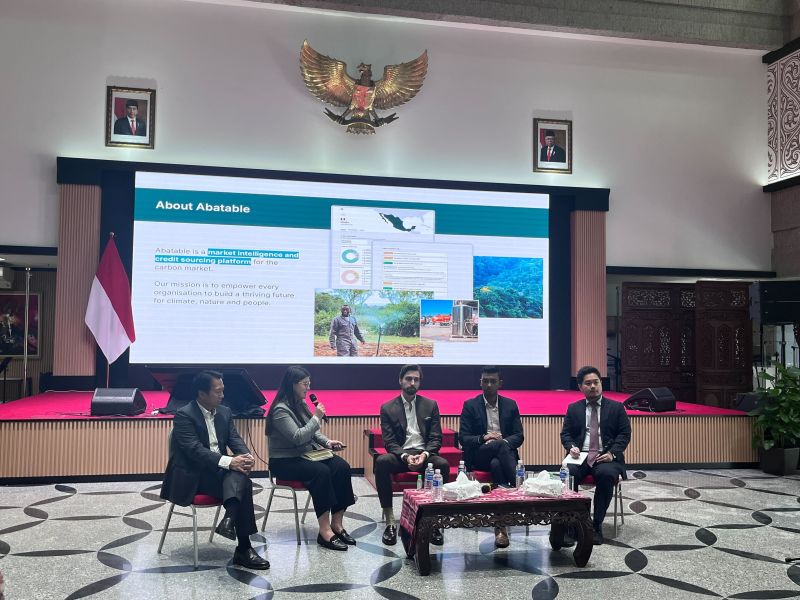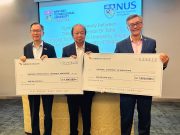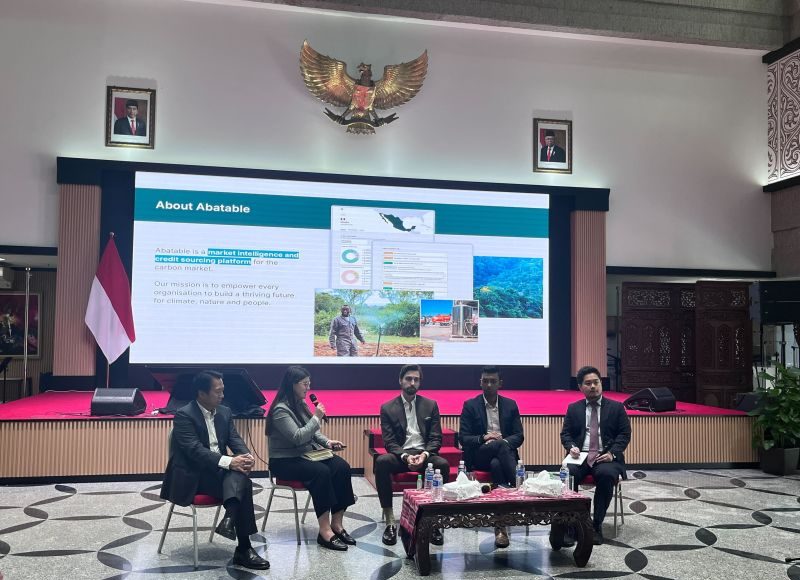(Singapore, 21st April 2024) Carbon markets play an important role in Indonesia 2045 road map, said Suryo Pratomo, Indonesia’s Ambassador to Singapore at the AACM’s Scaling Climate Impacts round table on Thursday.
The round table focus on exploring the opportunities to advance the carbon market ecosystem and devise actionable plans to foster sustainable growth and impacts within ASEAN. The roundtable discussion is also a part of support to Ecosperity Week 2024, which focus discussions on innovative solutions across technology, nature and finance to accelerate a green and transition.
Indonesia 2045 aspires to be a resilient, prosperous, inclusive, and sustainable powerhouse, and become the inspirational lighthouse from ASEAN. The project aims to identify any potential avenues for Indonesia to be a resilient country with peace and prosperity in 2045 based on economic, political and social analyses.

While the project is designed to ensure Indonesia is on track in meeting its national agenda to build a stronger economy and prevent conflicts and extremism,
“I believe there is a strong role for carbon markets to play in the Indonesia 2045 Roadmap, given the current Jokowi Administration has launched Indonesia Carbon Exchange through IDX, a promising milestone last year with more to come,” said the 61-year-old diplomat.
Carbon market is a specialized type of financial market, through which carbon credits can be bought and sold. Carbon credits are essentially permits that allow the purchaser to emit a certain amount of carbon dioxide or other greenhouse gas.
To put it in a simple way, what the carbon markets do is turn CO2emissions into a commodity by giving it a price and they can both be bought and sold on a carbon market (compliance or voluntary).
Compliance markets are created as a result of any national, regional and/or international policy or regulatory requirement. Whereby voluntary carbon markets refer to the issuance, buying and selling of carbon credits, on a voluntary basis.
Indonesia has committed to reach net zero emissions by 2060 or before – an ambitious task given the country’s growth objectives and status as a globally important consumer and producer of coal.
The nation has passed regulations on carbon pricing with the objective of setting up a compliance carbon market, which includes putting in place an emission trading system (ETS) by 2025 to incentivize emissions reductions in high-emitting economic activities. Indonesia has been familiar with the Voluntary Carbon Market (VCM) since the past few decades before deciding to establish a mandatory carbon market to meet Nationally Determined Contribution (NDC) targets for specific sectors.
However, with a transition to net zero offering extensive and varied economic opportunities, Indonesia is beginning to put in place the policies and frameworks that can help reach this target while moving towards advanced economy status.
Among the ASEAN countries, Singapore is the first in the region that introduce carbon tax legislation in the year 2019, and two years later, it launched a global carbon exchange and marketplace. Foreign companies enter the market to buy global carbon rights, which can be used to offset emissions from factories all over the world, thus helping Singapore move towards its goal of becoming a carbon trading center.
As Rueban Manokara, Assistant Director of National Climate Change Secretariat said, government policy is the most important factor in determining whether the carbon market system is going to work eventually.
As the matter in fact, Singapore’s Ex Senior Minister and Coordinating Minister for National Security Teo Chee Hean and Indonesia’s Coordinating Minister for Maritime Affairs and Investment Luhut Binsar Pandjaitan had signed Concerning Cooperation on Climate Change and Sustainability in the year 2022.
The then Senior Minister Teo stated that, Singapore will continue to seek opportunities to collaborate with like-minded regional and international partners to create new solutions for a decarbonized and sustainable future. Such partnerships will enable Singapore to achieve our net zero goal by or around mid-century.
According to report showed by Shell last year, voluntary carbon markets are set to become at least five times bigger by 2030, transacting volumes comparable to annual emissions by the global aviation industry in 2019.
The report anticipated a further growth in the voluntary carbon offset market, which was worth about $2 billion in 2021, will grow to $10-40 billion in value by 2030, transacting 0.5-1.5 billion tonnes of carbon dioxide equivalent, compared with 500 million tonnes last year.
To advocate further development of carbon markets in the region, the AACM and Abatable signed a Partnership Agreement in the margins of the meeting that will focus on supporting the AACM’s policy advocacy work.
“Carbon markets have proven to be an effective tool in facilitating finance flows from rich to low- and middle-income countries, supporting positive solutions for climate, nature and people. We are delighted to be partnering with the AACM to advance the development of carbon markets across Southeast Asia,” said Maria Eugenia Filmanovic, Co-founder of Abatable.
“I’m pleased to see the strategic partnership between Abatable and AACM signed today in Singapore. The Alliance is well-positioned to work with leading organizations and international partners to address the most pressing issues in both VCM and compliance markets,” said Dharsono Hartono, Permanent Chair of AACM.
The partnership will focus on supporting AACM’s policy advocacy work, centring on an upcoming report on the voluntary carbon market in Southeast Asia.





































